Are you curious which real villain from history was most like you? Then sit back and enjoy THIS QUIZ.
The World Dictator Quiz


Are you curious which real villain from history was most like you? Then sit back and enjoy THIS QUIZ.
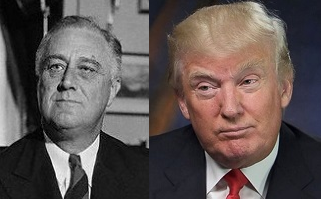
So three days into his Presidency, we have a few Executive Orders, some Cabinet appointments, and essentially an Inauguration Speech to go on. Is it fair to draw any comparisons yet?
I say it is. Not only was there a President very much like Donald Trump in the not-so-distant past, but there was one very much like his predecessor. Yes, I am talking about Franklin Delano Roosevelt and Herbert Hoover.
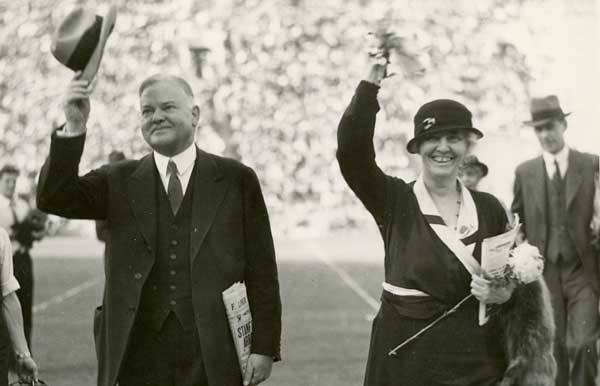
President Hoover was an Intuitive Thinking (INTJ) President who was elected during a time of massive economic turmoil in order to restore economic prosperity to the nation through radical means. He was an intellectual (a former Stanford University professor) with ties in East Asia (China) who decided to use untested Keynesian economics to fight the stock market crash of October, 1929. In spite of a scandal-free Presidency, growing poverty and ecological crises (the Dust Bowls and heat waves) marred his Administration and he ranks among the most hated of all Presidents.
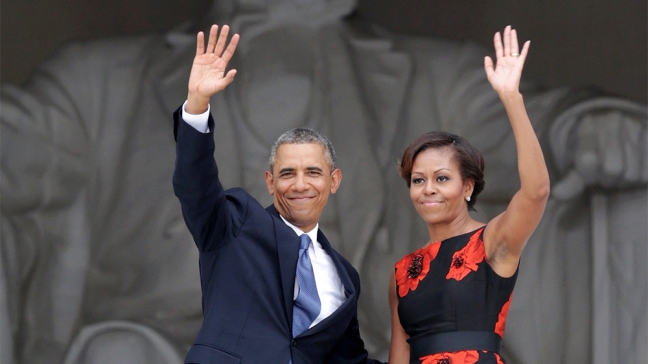
President Obama was also an Intuitive Thinking (ENTP) President elected shortly after the second worst economic meltdown in 100 years. Also an intellectual (a former Harvard Law Professor) with ties to Asia (he attended elementary school in Indonesia), people hoped his fresh approach to politics would restore integrity to government and rejuvenate the US economy. Although statistical economic indicators showed that the economy had rebounded and his Administration was squeaky clean, true poverty in America increased by close to 50% and racism cannot be dismissed for the massive hatred and contempt many people expressed toward the Obamas. It did not help matters that President Obama did little to change the hawkish policies of the previous Administration that he promised to eliminate when he was elected. The Obama Administration will most likely not be remembered fondly.
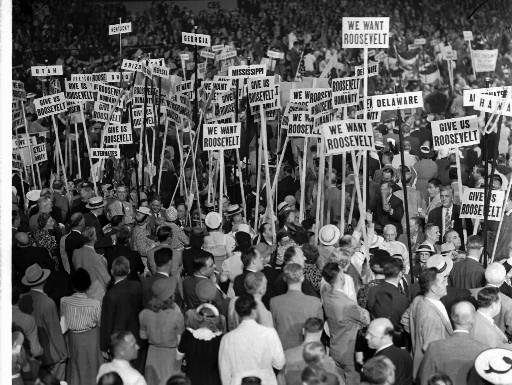
Franklin Delano Roosevelt in the 1930s was not the politician we read about in history books, the one who delivered inspirational speeches as America was attacked at Pearl Harbor. FDR was a rich New Yorker who belonged to a political party mostly populated by… let’s be blunt here… poor white trash from the South.
He was brash and impulsive and disobeyed orders from President Woodrow Wilson (the head of his party) not to run for U.S. Senate in 1916. (He lost that race, by the way.) He was a womanizer whose wife hated the spotlight (but could masterfully manipulate the media when she put her mind to it).
Does this sound like anyone?

In 1930, radio was a brand new technology and the majority of households in the United States did not yet own one. In spite of its reputation as a decade of poverty, the 1930s saw an explosion of technological advances in the realm of crystal radio technology and even television broadcast technology. By the end of the 1930s, most American households owned at least one radio.
President Roosevelt took advantage of this new technology to disseminate his propaganda directly to the American public live on the airwaves via his Fireside Chats.
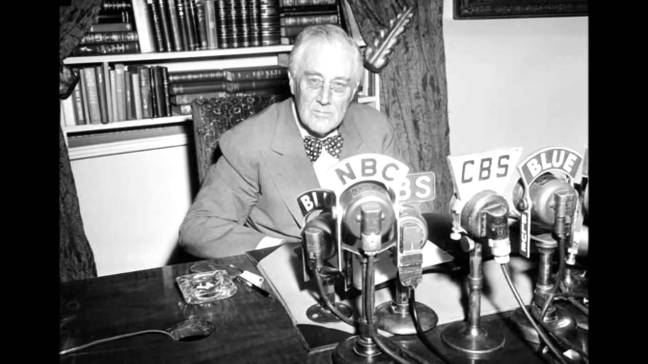
Eighty years later, what would be the equivalent of a fairly new technology like AM Radio? Perhaps…
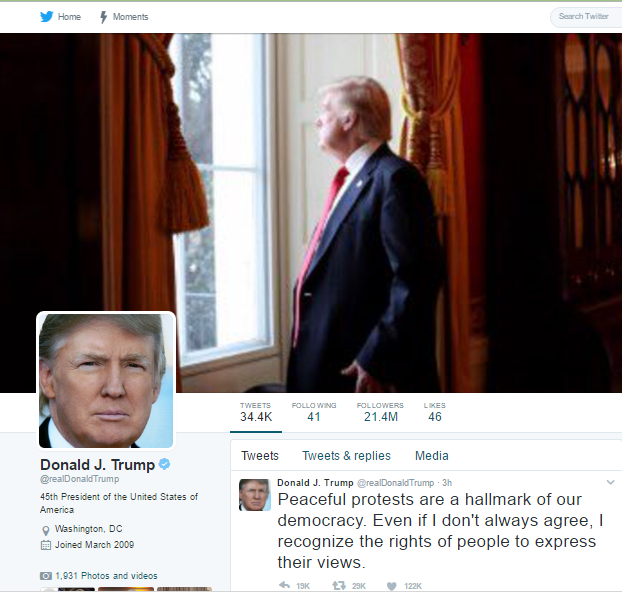
Franklin Delano Roosevelt was not afraid to involve his children in his Administration. His son, James Roosevelt, often walked him to the podium when he delivered historically significant speeches, such as his “Infamy” speech on December 8, 1941.
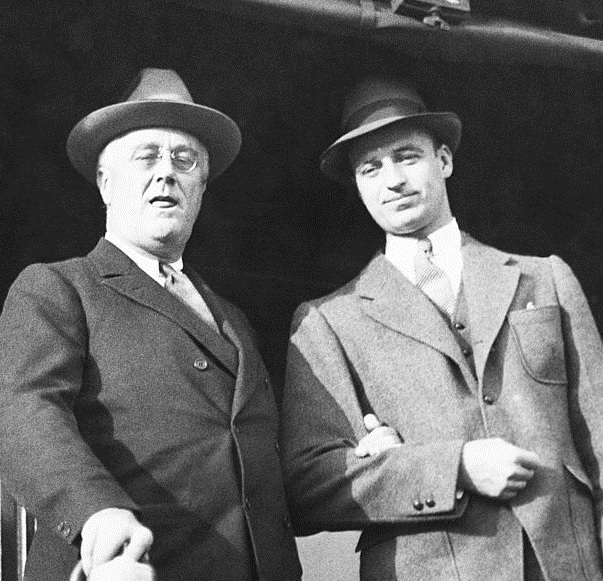
President Trump has left the care of his business affairs to his eldest son, Donald Trump, Jr., and speculation is that the formal duties of First Lady will be left to his eldest daughter, Ivanka Marie Trump-Kushner, so that his wife can devote her full time to taking care of their youngest son.
Don’t say you didn’t see this one coming. In 1942, President Roosevelt ordered the internment of all civilians of Japanese descent, including women, children, the elderly, and even babies.
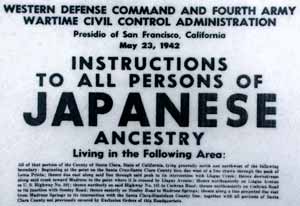
This marked one of the worst civil rights periods in America since the end of the Civil War. Although some German immigrants were also interned, the government was quite a bit more selective about whom it locked up, basing policy purely on immigration status, rather than on racial traits.
Perhaps President Trump was looking at this model as a blueprint when he decided to offer a wall between the United States and Mexico in his campaign speeches.
I think I have thoroughly made my case documenting why Donald Trump, intentionally, or unintentionally, will be very similar to Franklin Delano Roosevelt as a President. I am talking more about pre-WW2 FDR, not hawkish Roosevelt, so don’t start thinking apocalypse and nuclear war.
It is easy to look back at trends from history and see them repeat in the future. Life is not that mysterious when you know what you seek. It is pretty predictable.
There are a few sites floating around speculating on this topic. This is a corrected list based on extensive discussions I have seen in various boards and discussion groups online. I shall keep it simple.
*Certified test result from MBTI II.
So in the previous blog, I analyzed a wartime drama to demonstrate the difference in how Sensors and Intuitives behave during wartime and peace. There are larger ramifications to this difference, especially with the upcoming elections, specifically in the United States. (I am focusing on those because I live in the USA and am most familiar with the candidates for President in the USA.)
Most of the candidates running for United States President in 2016 are ENTJs on the MBTI typing scale; however, realistically, they are not viable candidates and will probably drop out of the race soon. I will focus my discussion on the five frontrunners:

As a full disclosure on this blog, I have signed up to volunteer with one of the campaigns.
However, I will not endorse any particular candidate on this blog and will attempt to explain why certain candidates are better under the general future trends for the United States than others, based on their personality types. As you can see, there are duplicates on several political stances, so there is actually some variety among the frontrunners based on personality as well as political stance.
To reiterate, one candidate is a far left intuitive, one candidate is an intuitive centrist, one candidate is a centrist sensor, on candidate is an intuitive conservative, and one is a conservative sensor. Unless your political preference is on the far left, you have duplication based on whether the candidate is a sensor or an intuitive.
Briefly, when has the United States been at war? Numerous times, but the major wars have been:
The Revolutionary War: Commander in Chief: George Washington – ISTJ
The War of 1812: Commander in Chief: James Madison – INTP
The Mexican War: Commander in Chief: James Knox Polk – INTJ
The Civil War: Commander in Chief: Abraham Lincoln – INTP
The Spanish American War: Commander in Chief: William McKinley – ESFJ
World War One: Commander in Chief: Woodrow Wilson – INTJ
The Spanish Civil War: Commander in Chief: Franklin Delano Roosevelt – ESTP
World War Two: Commander in Chief: Franklin Delano Roosevelt – ESTP, Harry S Truman – ISFJ
The Korean War: Commander in Chief: Harry S Truman – ISFJ
The Vietnam War: Commander in Chief: Lyndon Baines Johnson – ESTP, Richard Milhouse Nixon – INTJ
The Gulf War: Commander in Chief: George Herbert Walker Bush – ISFJ
Operation Enduring Freedom: Commander in Chief: George Walker Bush – ESTP, Barack Obama – ENTP
Each time America has been through a war, it has emerged victorious. However, sometimes it has gone through horrendous economic times immediately afterwards. Sometimes it has gone through periods of dynamic economic growth. I believe much of this has had to do with the type of leadership in the White House immediately after the war ended. Presidents set the economic style and policy for the nation by appointing Federal Reserve officers, Treasury Chairmen, and deciding how to deal with Congress when budgets are presented to them.
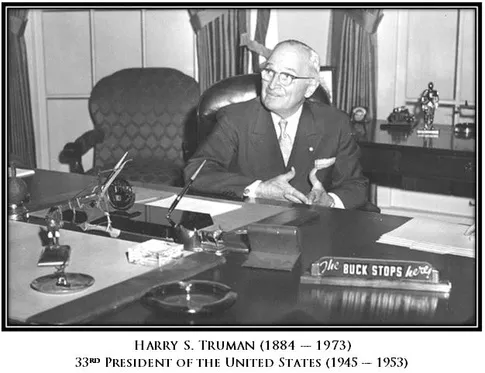
The period after the Revolutionary War was a period of terrible poverty and economic instability for the new United States under Sensor George Washington.
The period following the War of 1812 saw an economic boom in the United States, especially after the completion of the Erie Canal Project, which led to the explosion of growth in New York City. That was when Intuitive James Madison was in office.
During the period following the Mexican War, ISTP Zachary Taylor’s shortsighted policies led to short-term gold rushes and economic booms in the economy, but long-term economic instability and inequality that led to the civil war and the growth of huge tenements in urban areas. Few people benefited from the technological advances in telegraphy and railroads that were widely touted in the early 1850s.
Likewise, the period following the Civil War was a period of horrific poverty in the South for decades under the leadership of Sensor presidents like ISTJ Andrew Johnson and ISFP Ulysses Grant and even Benjamin Harrison (ISTJ) and Grover Cleveland (ESTJ).
Let’s fast-forward to the Roaring Twenties. Woodrow Wilson (INTJ) led the nation into an economic boom after World War One. There were a few rough bumps under Warren Harding’s (ISFP) scandal-ridden administration, but the party continued under Silent Cal (Calvin Coolidge – INFJ) through 1929.
Contrast this with the debacle that followed World War Two’s economic boom. ISFJ Harry S Truman nearly lost his reelection bid after a spectacular victory against Japan because of his phenomenal bungling of the economy on the homefront and horrific housing shortages for returning veterans and their brides.
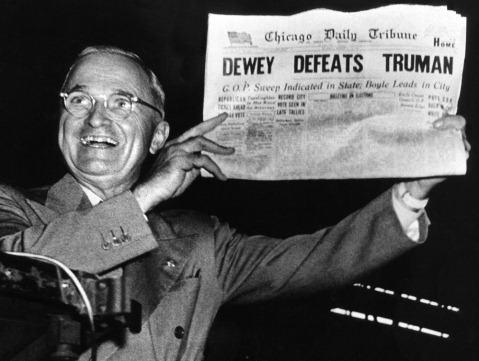
Does this sound familiar? Kind of like ISFJ George H.W. Bush’s landslide loss in 1992 immediately after his spectacular victory in the Gulf War only a year earlier?
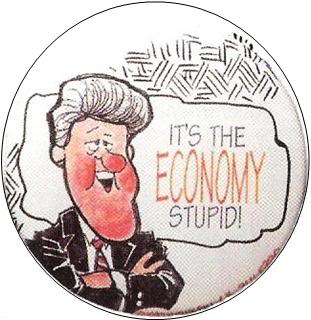
Almost immediately after Bush left office, Intuitive Bill Clinton led the economy into a boom cycle that lasted the duration of his presidency.
Let’s talk about Vietnam. Vietnam was a very unpopular war, but a lot of people became quite prosperous from that war.

Richard Nixon, to his credit, fulfilled his promise to the American people to withdraw American forces from that war. Sadly, his unscrupulous campaign tactics will be his enduring legacy and he left office under a cloud of suspicion and disgrace and an appointed Senate Whip was left to complete his term after his elected Vice President had already been removed from office before he was.
Gerald Ford was an ESFJ, and his successor, Jimmy Carter was an ISFJ. Both Presidents were Sensors and lacked the long-term vision necessary to set long-term goals for the economy. The country started a downward spiral of double-digit inflation and double-digit unemployment following the withdrawal from the Vietnam War. This was called malaise.
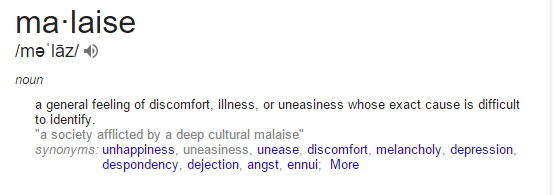
The Malaise drew to a close when ENFP Ronald Reagan was elected to office and the Reagan Era began.
Of course, not since 1929 has any President mismanaged the economy as badly as ESTP George Walker Bush did as Operation Enduring Freedom died down in 2007. To say that the economic meltdown was caused by war is a hideously gross oversimplification; however, the burgeoning domestic problems, especially the real estate market, needed to be addressed, while he was busy playing Generalissimo at a war that had really been won by 2004. Multiple unaddressed, neglected factors led to the epic economic meltdown in 2008. This is a direct result of having a President with no vision of the future in office.
Economic forecasters state we’re at the beginning of a thirteen year bull cycle in the stock market, which is expected to peak in the mid 2020s. Bin Ladin was neutralized in the Middle East in 2011. Most of the American troops were cleared out of Afghanistan and Iraq. Unemployment is at record lows not seen since the 1960s. President Obama is leaving a nice situation for his successor. Um… then again, so did Franklin Delano Roosevelt in 1945. That is no guarantee for success. We, as a voting public, still have a responsibility to make a wise choice in leaders.
There is a clear pattern in history. After wars, Intuitive Presidents make better decisions in managing the economy than Sensor Presidents do.
We have three frontrunner candidates who are Intuitive personality types, and, fortunately for the public, they span the range of political views. There is someone for everyone, whether you are a Socialist, a Centrist, or a Far Right Conservative.
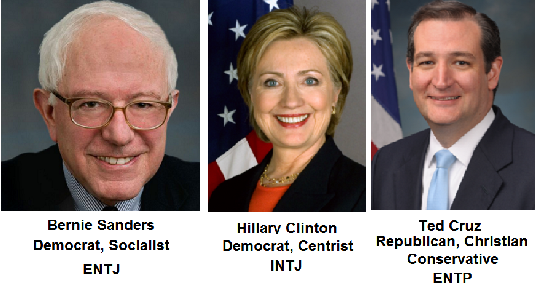
They would probably be better equipped psychologically for the economic challenges that lie in the future over the next nine years than the other two frontrunners.